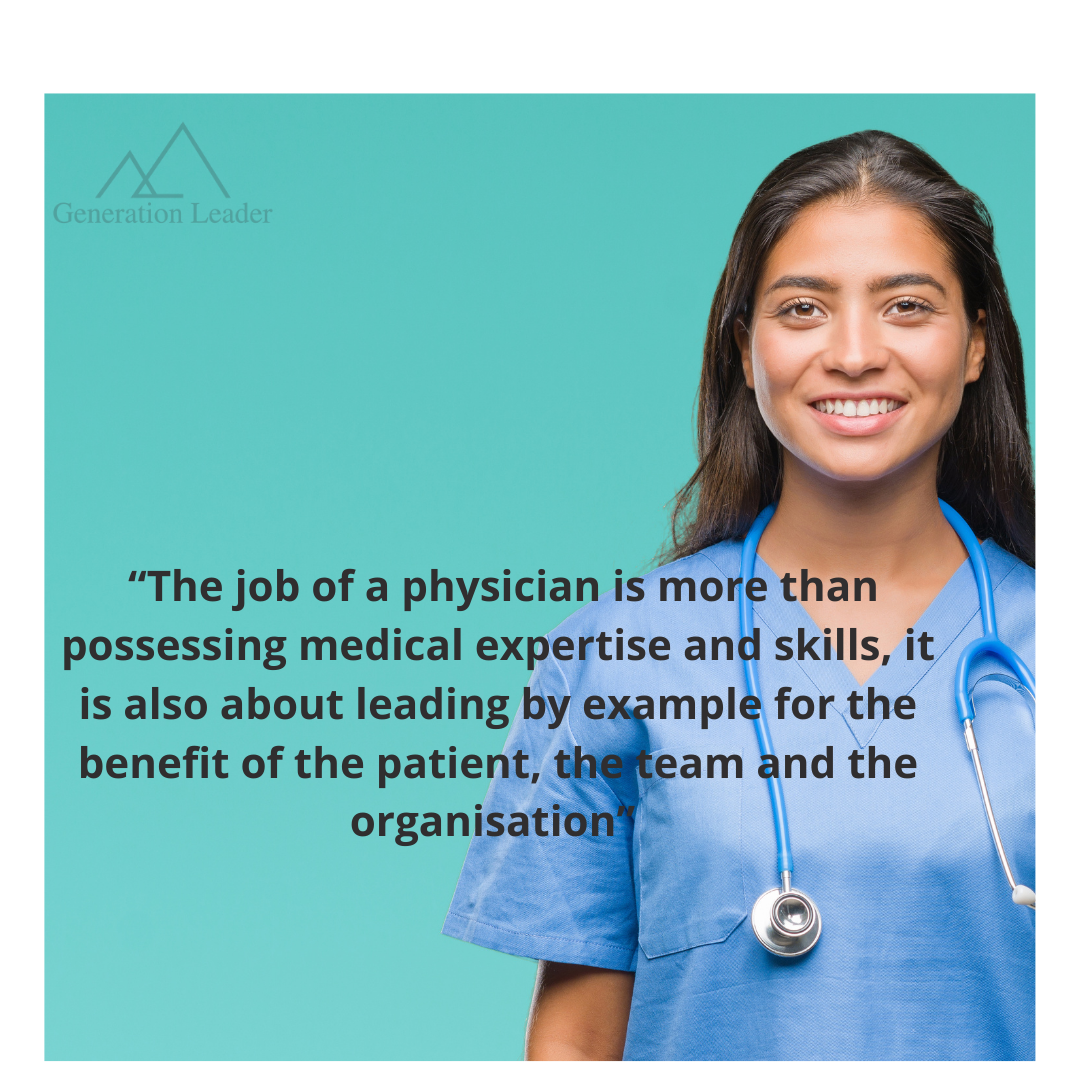We are increasingly realising that being a physician is to lead. Early in our careers we are managing and directing teams and it is not until later with seniority in the job that the span of leadership becomes more prevalent. Not only are we regarded as senior physicians and decision makers, but our job titles also carry a certain responsibility when it comes to directing teams and being mentors to younger professionals. More importantly, there is evidence proving that leadership and management skills positively influence the patient and healthcare organisational outcomes.
The essential nature of possessing medical leadership skills has further been underlined by the General Medical Council (GMC) and UK Medical Royal Colleges, acknowledging this is a core competency. It is clear that the majority of doctors have leadership responsibilities throughout their career, however this is not taught nor addressed in the undergraduate and postgraduate training in a meaningful way. Some healthcare professionals are promoted to leadership positions due to their clinical expertise without possessing management competencies. However, being an effective leader requires one to start developing these skills at an early stage during training.
The pandemic has meant that leaders were facing challenges of a different nature to what they had previously experienced. To lead effectively during a crisis, management and leadership skills are essential. Healthcare systems are largely reliant on standardised protocols and procedures. However, a crisis will pose a different challenge and therefore effective leadership is necessary. One of the changes we had to make was in regard to family updates, which happened on a daily basis via videoconferencing calls and telephone calls, due to limitations in visitations. The pandemic has demonstrated the importance of preparing the healthcare sector for a future crisis by educating the workforce in management and leadership. This is not only necessary to enable an organised and coordinated response of the organisation to the task at hand but also important for staff holding professional responsibilities and staff wellbeing [1].
A study conducted in Denmark found that leaders with formal management and leadership training performed meaningful tasks more effectively during the pandemic. They also experienced better coordination and decision-making abilities. Leaders who had formal training, felt more likely to communicate clearly, quickly and transparently compared to their counterparts with no management training [1]. Is it therefore time to consider management and leadership training in the healthcare sector as compulsory?
The 7 qualities of an effective medical leader:
- Displaying emotional intelligence, personal integrity and stress tolerance
The most important component of effective leadership is personal qualities such as self-awareness, self-confidence, self-control, personal reflection and resilience. As leaders we have to possess these qualities in addition to awareness of our strengths and limitations. It is important to understand the effect this has on behaviours and interactions with others and them with you. A lack of awareness will challenge and influence how we lead and the chances of improving and optimising our leadership qualities [2].
- Having a shared purpose
Having a shared purpose with your team and the organisation as a whole means to involve yourself in improving services and aligning mutual clinical interests to influence patient care in a positive way. This also means understanding the vision, mission and values of the organisation [2].
- Leading with care
Providing a caring, safe environment to enable staff to carry out their job effectively [2].
- Innovation and quality improvement
Generating new ideas and making effective plans for improvement. This can be applied in quality improvement projects and audits.
- Engaging the team and nurture optimism and commitment
Empower team members, make them feel valued and their ideas important for service delivery and improvements. This is the responsibility of everyone, not just those in positions of seniority.
- Supporting team members
It is essential to provide clear direction and performance goals but also providing the support that team members might need to fulfil the desired outcomes [2]. This can be done by feedback and coaching.
Another important finding from the Danish study revealed that leaders with less than two years of experience felt that they did not have the necessary competencies to effectively manage the pandemic, compared to those with five years or more experience. This proves the importance of offering support and mentorship to frontline leaders [1].
- Understanding the structure of the healthcare service and systems
This is essential in order to:
- Put teams together
- Address areas of improvement
- Strategising objectives effectively
- Understanding what resources are required and the availability of these
References
- Hølge-Hazelton et al. (2021). Health Professional Frontline Leaders’ Experiences During the COVID-19 Pandemic: A Cross-Sectional Study. Journal of healthcare leadership, 2021:13 7–18.
- NHS Leadership Academy (2013), The Healthcare Leadership Model: The nine dimensions of leadership behaviour Version 1.0, Leeds.
About Generation Leader
Generation Leader provides the most innovative, relevant and impactful online healthcare management and leadership courses for healthcare professionals.
Our courses are aligned to the leadership curricula of the UK’s Royal Colleges and made specifically for healthcare professionals. Our courses have been created by medical doctors who know how the healthcare sector works from years of experience. All courses are applicable and relatable and help learners to succeed in gaining essential skills to excel in day-to-day work activities, such as: communicating with colleagues and patients, complex problem solving, conducting difficult conversations, innovation, knowing how to lead and motivate teams.
Join Our Community & Start Learning Today
